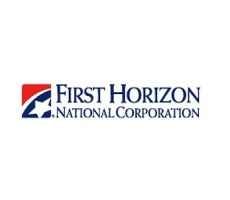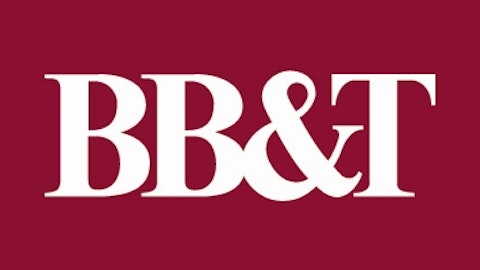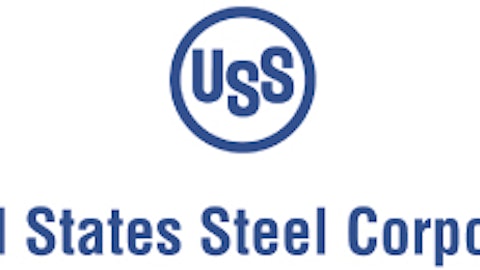Earlier this week, the regulators finally published the Basel III rules for U.S. banks. It is widely believed that the rules were in line with investor expectations for the “advanced” banks but at the same time, provided some relief for the non-advanced banks. Particularly, First Horizon National Corporation (NYSE:FHN), SunTrust Banks, Inc. (NYSE:STI), and BB&T Corporation (NYSE:BBT) will benefit the most. First, let’s look at the new rules and see how they favorably impact the aforementioned banks.
Newly published rules

While some changes were made, the regulator left the supplementary leverage ratio unchanged at 3%. However, I believe it will be changed on the July 9 meeting. Supplementary ratio is a measure that looks at capital held against total assets as opposed to the popular risk-weighted assets. Among a few of the changes made include a narrower definition of what counts as a bank’s capital, the doubling of the minimum ratio for capital and assets, and the reclassification of derivatives and mortgage-based securities as riskier than in the previous standards. Let’s look at some of these major changes in detail.
Narrower capital definition
The change in the definition of Tier 1 common capital was one of the major changes under the final rules for unrealized gains and losses on available for sale securities.
The regulators require advanced banks to include the gains and losses from available for sale securities in their other comprehensive income. However, the regulators gave the non-advanced banks the option to opt out of including the unrealized gains and losses from their Tier 1 capital. This option will leave the smaller banks with less volatility in their capital levels and ratios, leading to smaller buffers for interest rate risk above minimum capital ratios due to reduced volatility. Therefore, it is a modest positive for the industry.
Changes in risk-weighted assets
The regulators did not make any significant changes in the calculations of the risk-weighted asset calculations. However, the minor changes are focused on the treatment of mortgage risk weights.
Under the previous regulations, mortgage risk weights were tied to the loan-to-value of the underlying loan and usually received risk weights within the range of 75%-200%. However, under the new regulations, the risk weighting would be within the range of 50%-100%. First lien exposures that are not 90+ days past due, and that have not been restructured or re-modified, would receive 50% risk weighting, while all other residential mortgage exposures would receive 100% risk weighting.
I see First Horizon National Corporation (NYSE:FHN), SunTrust Banks, Inc. (NYSE:STI), and BB&T Corporation (NYSE:BBT) (non-advanced banks) as the biggest winners of this change in the risk weightings of the banks’ residential exposures. Besides Wells Fargo & Co (NYSE:WFC), these banks have the largest mortgage portfolios, particularly with higher loan-to-values at originations.
Around 3.6% of First Horizon National Corporation (NYSE:FHN)’s Basel I risk weighted assets were mortgages, while SunTrust Banks, Inc. (NYSE:STI)’s mortgage accounted for 3.5% of its risk weighted assets. Then comes Wells Fargo with 3.4%, followed by BB&T at 3.2% of total mortgages as a percentage of Basel I risk weighted assets.
Other performance drivers
For First Horizon National Corporation (NYSE:FHN), the improving credit quality despite pressures from the macro economy will be a defining performance driver. The bank’s credit metrics improved consistently last year. Going forward, you should expect its asset quality to improve further with continuous reserve releases. Besides this, the bank’s cost control strategy will provide some cushion to the bottom line when the top line remains under pressure.
SunTrust Banks, Inc. (NYSE:STI) has made its payment for TARP and completed the equity raise. Now, it is in a position to benefit from the strong demographic growth trends in its footprint. For BB&T, growth lies in the stabilization of the real estate markets in the bank’s geographical footprint. This stabilization could lower provisions and other real estate owned (OREO) expense for the bank.
Conclusion
In short, First Horizon National Corporation (NYSE:FHN), SunTrust Banks, Inc. (NYSE:STI), and BB&T are expected to benefit from the opt-in provision for unrealized gain and losses on the available for sale securities, the change in the risk weights for the residential mortgage exposures, and grandfather of trust preferred securities for banks under $15 billion of assets at the end of the prior year.
The article Banks That Will Benefit From Final Basel III Rules originally appeared on Fool.com.
Adnan Khan has no position in any stocks mentioned. The Motley Fool has no position in any of the stocks mentioned. Adnan is a member of The Motley Fool Blog Network — entries represent the personal opinion of the blogger and are not formally edited.
Copyright © 1995 – 2013 The Motley Fool, LLC. All rights reserved. The Motley Fool has a disclosure policy.



